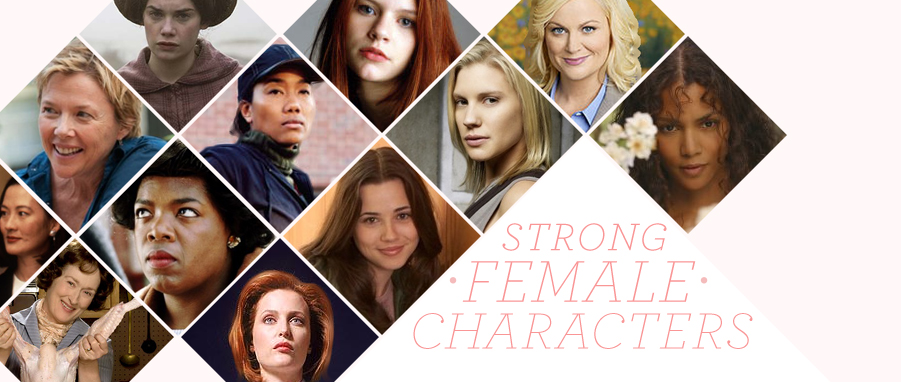I am a Disney princess. I have seven Disney princess Barbies (yes, present tense---they’re still stashed in the childhood shrine of my old home closet). My most treasured memories are of my formerly-yearly trips to Disneyland with my parents. I know the entire Menken/Ashman (and Menken/Rice, and Menken/Schwartz) catalogue by heart. That said, as a grown-ass woman with a social sciences degree, I readily recognize some of the problems inherent in the “Disney princess” idea, and the representations of female heroines in Disney movies from the “Golden Age” to the “Renaissance.” Jasmine’s Orientalist harem fantasy outfit. Ariel’s child-bride status. And the fact that, despite ‘80s- and ‘90s-bred themes of rebelliousness and girl power, each film’s resolution involves a marriage accompanied by a happily-ever-after fulfillment.
In the last decade or so, Disney films have made steps in the right direction. Mulan, for example, is a hardcore soldier who risks death by cross-dressing as a man to take her elderly father’s place, and ends up being better at winning battles than any of her male comrades. Tiana, the first black heroine, has the much more grounded, non-fairy-tale goal of opening her own restaurant, which supersedes romance (until, of course, she meets Prince Naveen).
As far as children’s films go, though, Pixar has indubitably taken up Disney’s mantle as the reigning champ, the benchmark (okay, technically Pixar is owned by Disney, but you know--- whatever). And what’s come up in the past decade or so that Pixar’s been releasing feature length movies is: where are the female protagonists?
Now they finally have one.
Merida, the wild-haired heroine of Pixar’s latest offering Brave---its 13th full-length animated feature---broke new ground for the very fact that she was female; the 12 previous protagonists, whether man or beast or robot or toy, were all male. So Brave represents a break with tradition, a big step forward, and the bonus of a new, strong role model for all the little girls (and boys) of the world, whose parents take them to see Pixar films and who benefit from Pixar’s better-than-children’s-movies storytelling.
That said, I’m really disappointed to admit that I was disappointed in Brave. I mean, it actually kinda breaks my heart. True, my expectations were beyond sky-high. Finding Nemo and Ratatouille are personal favorites, and I honestly think WALL-E and Up are some of the greatest achievements, not just in children’s movies, but in film history.
As many reviewers have already noted, it was a perfectly acceptable film by the standards of its genre. It was beautifully-animated, it was fun, it was sweet. But I’ve come to expect so much more from Pixar. I expect to be surprised and delighted, to have the conventional plot subverted, to see something that no one else has done before. For example, a story that revolves around a haute-cuisine-obsessed rat's ability to control the physical actions of a human chef by strategically pulling on his hair. Or a story that begins with the end of the world. Or the death of a wife.
The story in Brave is in many ways a conventional princess story, though it succeeds in, slightly, turning it on its head. Merida is a Scottish princess approaching womanhood, and as such is bound by tradition to marry the first-born son of one of the area tribes. The respective sons compete in an athletic game for her hand in marriage---a tradition meant to unite the land and maintain friendly relations between tribes.
Merida, of course, resists this tradition. She doesn’t feel ready for marriage, and it’s clear her options aren’t exactly appealing. (In this, her position is reminiscent of Jasmine’s in Aladdin---lame suitors, stubborn princess.) She butts heads with her mother, a loving but stern woman who values tradition and underscores Merida’s responsibility in keeping the kingdom together by marrying.
In the sense that, unlike Aladdin and other princess predecessors, Merida’s story does not have a conventional marriage ending, we are given a feminist reimagining of the traditional narrative. And in the sense that the film’s central relationship is between two women---the sometimes loving, sometimes brutal battle of wills that is the mother-daughter relationship---it is also admirably woman-centered. (And definitely passes the Bechdel test.)
But despite the steps forward in the woman-as-protagonist direction, Brave feels a little like a missed opportunity. The story is weaker than previous Pixar offerings, and it rests on tried-and-true children's-film conventions instead of exploring new territory. It will not go down in the record books as one of the greatest animated films ever made. It might not even get nominated for an Oscar (or at least, it might not win). For all the credit it gets in having the first female protagonist, to do so it still had to revert to a more conventional fairy-tale narrative---albeit one slightly reimagined for modern sensibilities.
I like Merida. I think she’s a great character. She’s tough---she’s a tomboy---she’s uncomfortable submitting to feminine convention---she’d rather be riding her horse, shooting her bow, and climbing precarious cliffs than playing the princess. She is flawed---her temper and her stubbornness make her brash, inconsiderate. She is naïve; she is rebellious. She is interesting, and she is realistic. Worth noting: Merida's mother is also a fantastic character, a woman with her own strengths and weaknesses different from Merida's.
Where the problem lies is that this story has been done before. And while that would have simply been a disappointment if it was just another Pixar movie, the fact that it was a landmark, first-female-protagonist Pixar movie makes that disappointment especially acute. It could have been better. Let’s hope Pixar’s next female protagonist has a film that befits her. And, maybe she doesn’t have to be a princess, either.



